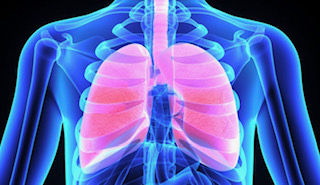One of the most serious health risks to patients who have difficulty swallowing is developing aspiration pneumonia. “Aspiration” is the medical term for when food or liquids go into the wind pipe (trachea) and then into the lungs. Repeated aspiration can eventually lead to pneumonia.

Research (Langmore et al, 1998) has identified some surprising factors that put a person who has difficulty swallowing at a greater risk of aspiration pneumonia:
Poor oral care/dependency on others for oral care: The presence of aspiration during swallowing is bad enough already, but it can be further worsened by what is aspirated. Poor oral care results in higher amounts of bacteria in the mouth, and these oral bacteria can contribute to pneumonia if they make their way to the lungs. If oral care is not good, food, liquid, and even saliva will pick up this oral bacteria and transport it to the lungs if it is aspirated. So while it’s bad that the food, liquid, or saliva has entered the lungs, the problem is made even worse by the addition of the oral bacteria.
Poor pulmonary clearance and weak cough: Speech pathologists love it when people cough. OK, that sounds a little strange, but coughing is the body’s natural protection against aspiration so a strong cough reflex, particularly for someone who has dysphagia, is good. If the cough is weak, that can often be improved in swallowing therapy.
A dry mouth fosters increased oral bacteria:
A common side effect of many medications is a dry mouth. When saliva is decreased, oral bacteria can build up and increase the risk of gingivitis and tooth decay. This brings us back to the first point about oral bacteria traveling to the lungs. Lungs and oral bacteria just do not mix.
Lying down after eating:
The risk of aspiration doesn’t go away after the meal is over. People with difficulty swallowing can have small particles of food remain in the throat after swallowing. The longer a person stays upright the better chance these particles have in making their way to the stomach. If the food particles stay in the throat, it is much easier for them to fall into the airway as soon as the person lies down. There is also the risk of stomach contents, which increase after eating, coming back up into the throat and being aspirated when lying down. So stay upright and let gravity work in your favor for as long as possible after eating.
Smoking: Add aspiration pneumonia to the long list of health risks that can result from smoking. Smoking increases the “pollution” in the mouth and decreases pulmonary function for clearing aspiration. Dependency on others for feeding: An unfortunate fact is that in many health care facilities the people who assist patients in eating are often under pressure to feed as many patients as possible in a short amount of time. This can result in large bites of food being presented too quickly, and a rushed meal doesn’t allow for strategies that can help with swallowing difficulty such as doing extra swallows for each bite or taking sips of liquid to rinse away particles of food. This all adds up to a greater risk of aspiration and pneumonia. If you have a family member in a health care setting with difficulty swallowing, ask if the staff has been trained on dysphagia and the risk of aspiration during feeding.


Commentaires